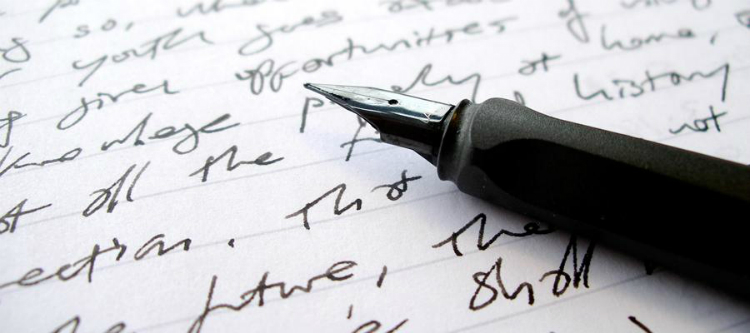The time has come to start on your personal statement: that ever-important piece of writing that will sell who you are to your potential universities! Daunting…
But have no fear, here are 10 things to think about that will make it seem not so bad.
- Make a start by yourself
Try to write the first draft of your personal statement without reading anyone else’s beforehand. No matter how self-aware you may be, it’s so easy to slip into mirroring someone else’s style, and that’s exactly what you don’t want to do here. It’s a personal statement, after all. Being inspired by other people once you’ve got something down initially is fine, but try not to hold anyone’s hand as you take your first few steps.


- Think carefully about your opening sentences
Start off right. You want it to be punchy and stand out, but probably not the best idea to dive in with a joke, because whoever is reading it miiight not have the same sense of humour as you. Quotes can be good, but only if they specifically relate to you/your course, for example a quote from a book you found particularly eye-opening that relates to your subject. Ideally not from Einstein or Gandhi or anything you could possibly find on an inspirational quotes poster. Essentially, don’t use a quote for the sake of it.
- Be yourself
In the same way you want to inject your personality into the first sentence of your personal statement, it’s great to have your voice shine through the rest of it. Whether this is through your writing style or by handpicking what parts of your academic and personal life you choose to highlight, as cliched as it sounds, stay true to yourself and be consistent throughout. Trying to project a false image of yourself is tiring, and anything contrived will definitely show on paper.


- Avoid buzzwords!
Avoid avoid avoid buzzwords and set phrases. This is probably the first piece of advice anyone will give you, but really do. It’s fine to be “passionate and have wanted to study ________ from the age of 5”, but find a different way of saying this. Even better, show it with concrete evidence of what you have been involved in so far.
- Answer the question
Show off what you’ve achieved (of course with an element of modesty), but at the same time, don’t just rattle off all your activities and accolades. Like any essay, make sure your personal statement answers the question – in this case: ‘Why would you be a good fit for [university name]’?. How exactly has being swimming captain helped pave the way for you as an archeologist? What is it about your school knitting club membership that makes you have lots to offer your university’s political scene? Make sure every sentence contributes to answering the main question. No fluff.
- Say something different
Ultimately, you want to be the rainbow guppy in a bowl full of, well, ordinary guppies. Not necessarily bigger or more flashy but different and desirable. Say you want to study Maths at university. So many people will have taken Maths and Further Maths when applying for Maths. Obviously. What have you done outside of your lessons, what have you read other than your reading lists, that shows just how enthusiastic you are about Maths and how much more you want to learn? Think about how any skills or lessons from other areas you have recognised can or should be transferred into Maths. Show that you are ready to make Maths a big chunk of your life for the next few years, because once you get in, it will be.


- Keep your options open
Unless you are writing to one directly, it is likely that your personal statement will be sent to lots of universities, some (or all) of which may have slightly different courses whether in name or content. For this reason, try to keep the appropriate areas of what you write vague enough that the admissions officers don’t feel like their university is anything but your first choice. This can be particularly hard for applications to Joint Honours courses, in which case it can be handy to talk about ‘fields’ or ‘areas of study’ rather than specific courses or modules.
- Tie it up neatly
Finally, the finishing paragraph or sentence is key in making your personal statement a polished whole. If you can, try and link it to whatever you said at the very beginning. If you do, though, don’t just robotically repeat what you said. (For example, if your first sentence is ‘________ observes that “everyone is biologically beautiful”’, don’t finish with: ‘For all these reasons, I truly do believe that “everyone is biologically beautiful” and therefore have no interest in any course but Biology’). Acknowledge what you have spoken about and be as natural as possible. If you are not a confident writer, this might be a good aspect of your personal statement you could ask someone who is to check to make sure it doesn’t sound clunky.


- No silly mistakes!
It should go without saying that your personal statement should not have a single spelling or grammatical mistake. Read it a hundred times if you have to, and get someone else to check for errors.
- Start early
Get cracking! The most stressful thing you can do is leave this til the last minute. It’s not that long, but it does take a long time to get right. This is your first chance to present yourself to your chosen universities and have them hopefully think, yep, (s)he’s definitely one we want, so make it something you can be proud of.
Good luck!


Written by Maia H, a Japanese & German tutor at MyTutor




